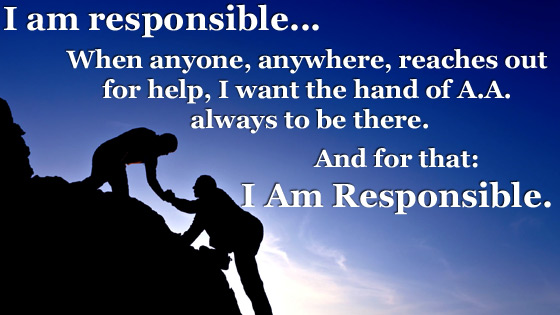
Service Work Helps To Keep Us Sober
If nobody was doing any service work, the Alcoholics Anonymous program would simply cease to exist. Without the service work of those who came before us, none of us would be here now!
Service Work In Recovery
One of the more common sayings you will hear at an Alcoholics Anonymous meeting is that, “you have to give it away in order to keep it”. What this is referring to is the idea that service in recovery can help the giver as much as the receiver. This giving should not be done in the hope of a reward or praise. Instead the individual does it because they know that it is helping to keep them connected. Numerous studies have provided evidence that helping others in recovery provides great benefit to the helper.
Service in Recovery Defined
Service in recovery refers to work carried out for no financial reward or compensation. This may involve directly helping somebody else, or indirectly helping them by providing services. Some individual do go on to make a career out of helping others, but this is no longer considered service if they receive payment.
The Importance of Service in Alcoholics Anonymous
Groups like Alcoholics Anonymous could not function without the voluntary services provided by members. All these meetings around the world are organized and maintained by volunteers. There is usually a collection at the end of each meeting, but (in the spirit of the seventh tradition) this money is used to pay for rent, coffee, donuts, literature, and other overheads. Almost every person at these meetings will provide some type of service, even if it is just sharing a bit of their story, or preparing the coffee.
Other Types of Service in Recovery
There is no need for the individual to be a member of a particular A.A. group in order for them to become involved in service. There are plenty of official and unofficial ways that those in recovery can help others. Such work is highly rewarding, and it can strengthen the commitment of the individual to their own recovery.
Types of Service in Recovery
Anything that directly or indirectly helps others in recovery could be considered service. Examples of this type of work include:
- Sponsorship
- Intergroup Represntative
- General Service Representative
- Volunteering to work with homeless AAs
Visiting AAs in prison - Making coffee or tea at a AA meeting
- Chairing or moderating at a A.A. meeting
- Giving out coins / tokens/ chips.
- Meeting set-up or clean-up
- Welcoming newcomers to recovery meetings
- Being supportive of those who are struggling in recovery
- Taking an official service role within a recovery group, for example treasurer or secretary
- Making time to speak to people who are obviously struggling with problems
- Those individuals who do not hide their past can prove inspirational for those who are dealing with this type of problem.
The Benefits of Service in Recovery
Service in recovery benefits both the giver and receiver. In a lot of instances it will actually be the giver who ends up benefiting the most. Such benefits include:
- Those people who devote some time to helping others are less likely to suffer with depression.
- Helping others with problems reminds the individual of where they have come from. This will keep the pain of dysfunction fresh in their minds so that they never forget it. This should keep them committed to the recovery path.
- The giver will feel that they are giving back and this will increase their confidence and self-esteem.
- Helping others takes the focus off the individual. This is important because a lot of problems in the recovering A.A.’s life will be due to self absorption.
- Providing service ensures that groups such as A.A. stay in business. If nobody volunteers their time these groups will disappear.